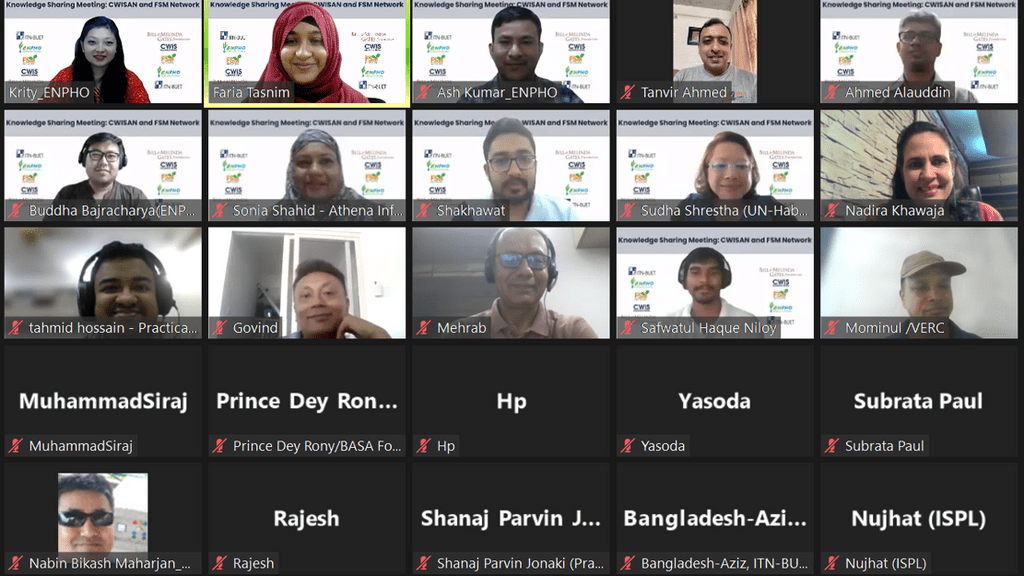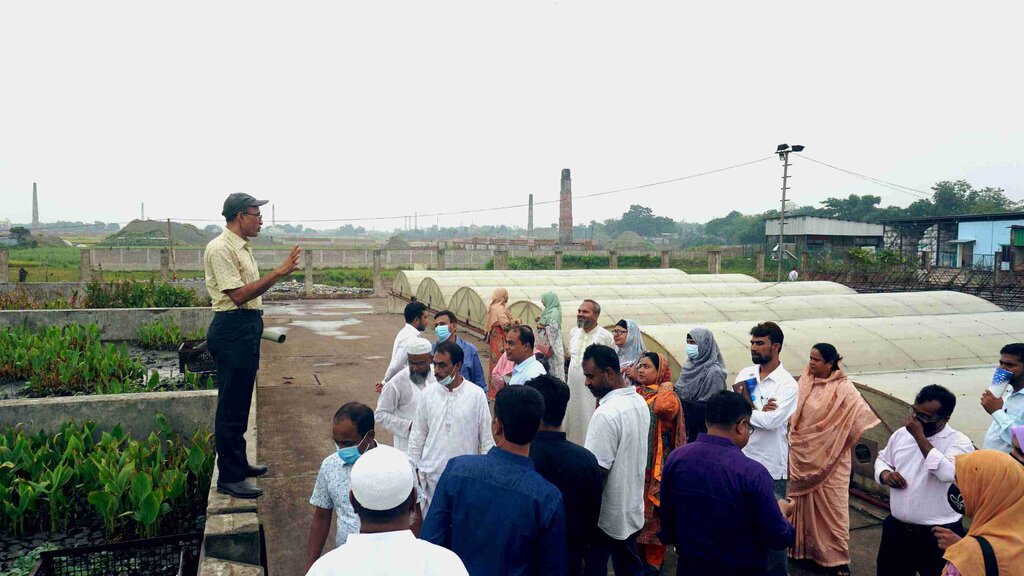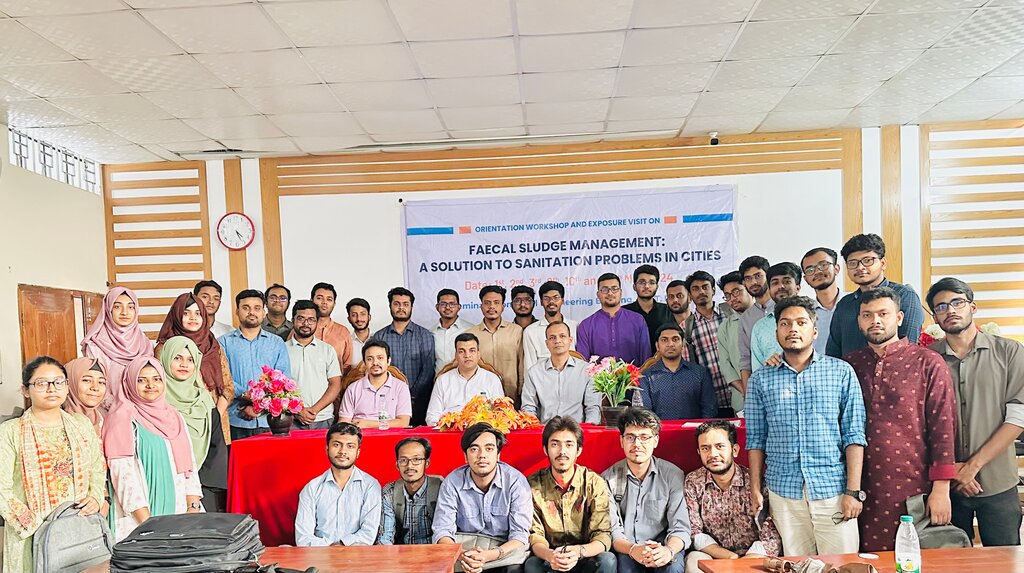Citywide Inclusive Sanitation (CWIS) is a public service approach for reaching the urban sanitation SDGs that accelerates progress in providing safe sanitation services. ITN-BUET, in collaboration with the CWIS-FSM Support Cell, DPHE, organized a ‘Specialized Training on CWIS’ for DPHE engineers to enhance their capacity and understandings. Executive Engineers of DPHE representing 24 districts attended the training from 9 to 11 September 2023.
At the commencement of the training, Mr. Tushar Mohon Shadhu Khan, the Additional Chief Engineer (Planning) of DPHE, underscored the mounting challenges associated with fecal sludge and solid waste management in Bangladesh. He urged all attendees to utilize the insights acquired during the training to promote the adoption of safe and sustainable sanitation measures.
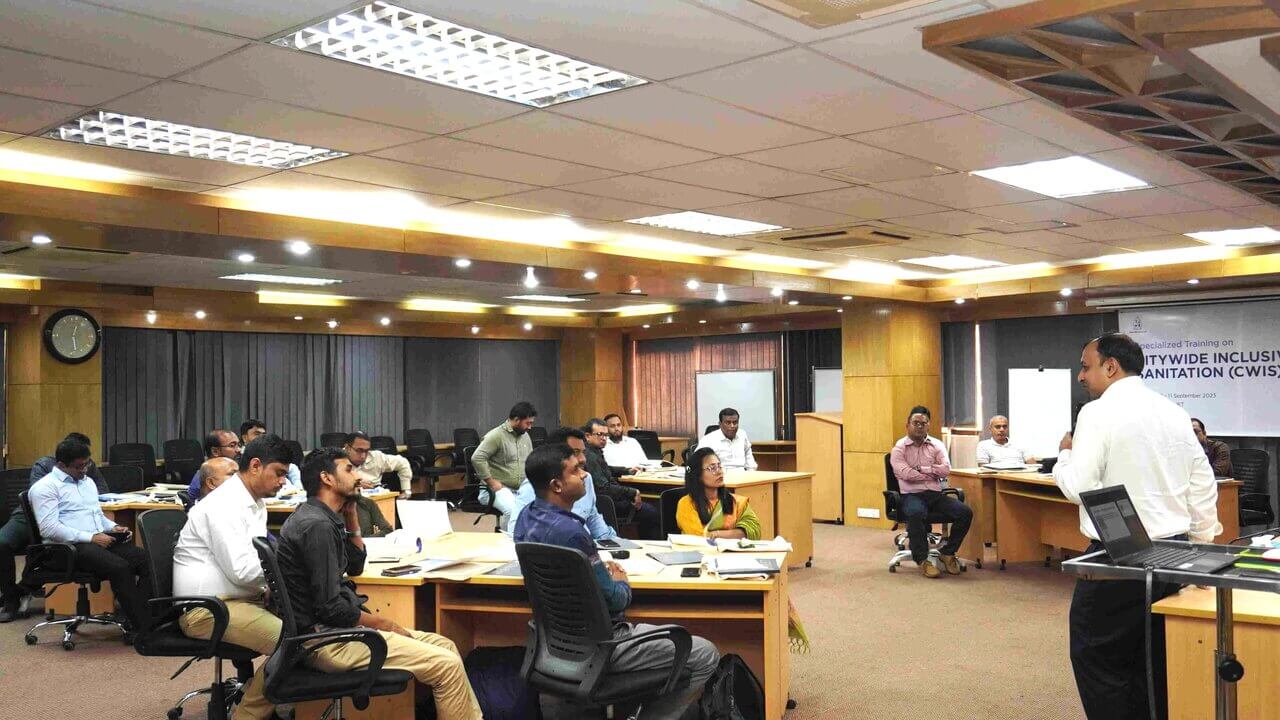
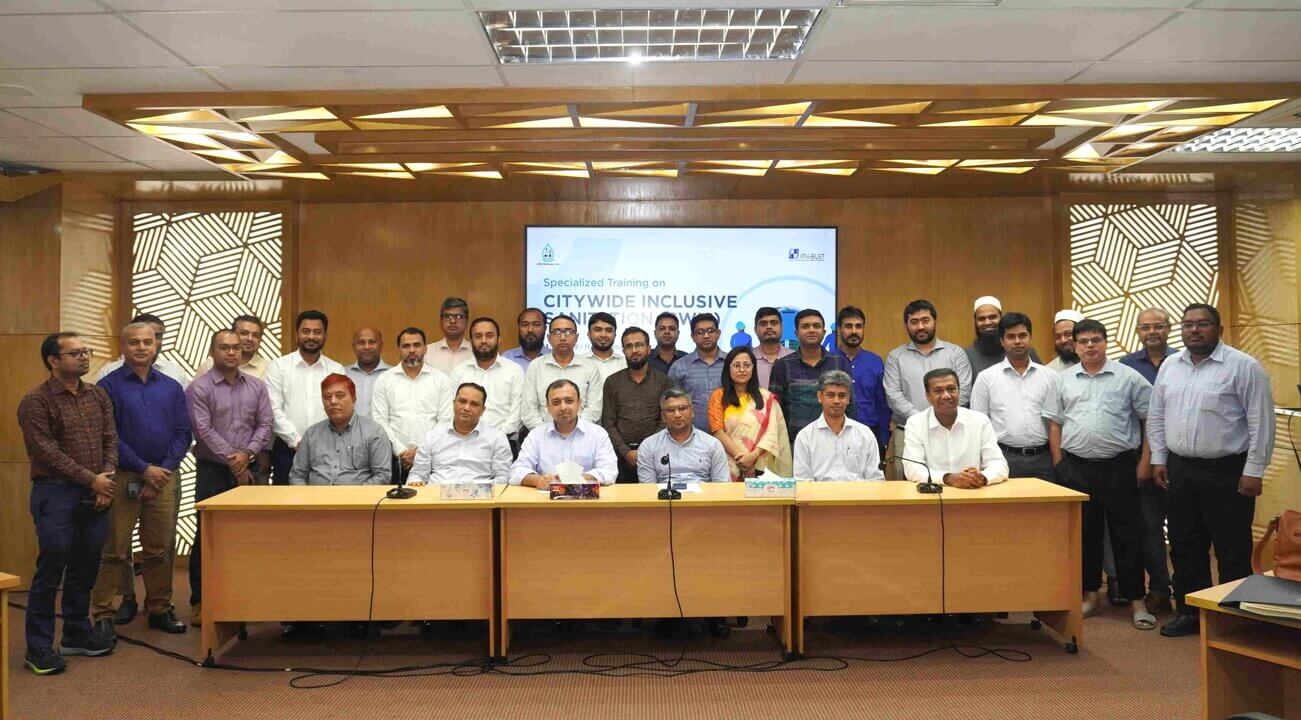
Renowned environmental engineers Professor Dr. Muhammad Ashraf Ali and the Director of ITN-BUET, Professor Dr. Tanvir Ahmed, led the crucial training sessions. Other notable facilitators of the training include Mr. Alauddin Ahmed, Project Manager of ITN-BUET; Mr. Sanjoy Mukherjee, the Social Development Expert of CFSC, DPHE; Ms. Tazrina Habib Ananya, Knowledge Management Specialist of ITN-BUET; Mr. Md. Azizur Rahman, Research Officer of ITN-BUET; Mr. Shahidul Islam, Water Sector Leader of SNV; and Mr. Tahmidul Islam, Senior Technical Officer of Practical Action.
The training sessions gave the participants a comprehensive understanding of CWIS through lectures, quizzes and group exercises. The sessions covered CWIS principles, sanitation service delivery, and existing sanitation regulations. Additionally, participants were introduced to the CWIS framework, which delved into system functions like accountability, responsibility, and resource planning & management to ensure safe, equitable, and sustainable sanitation practices.
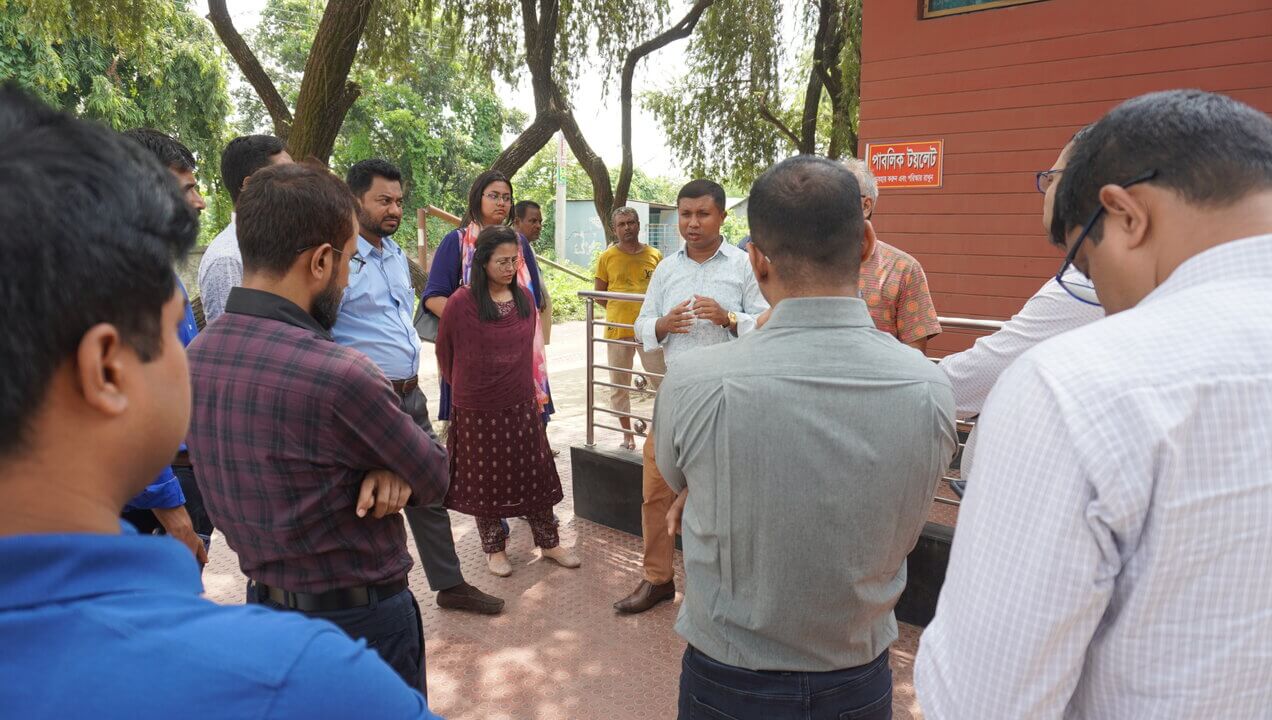
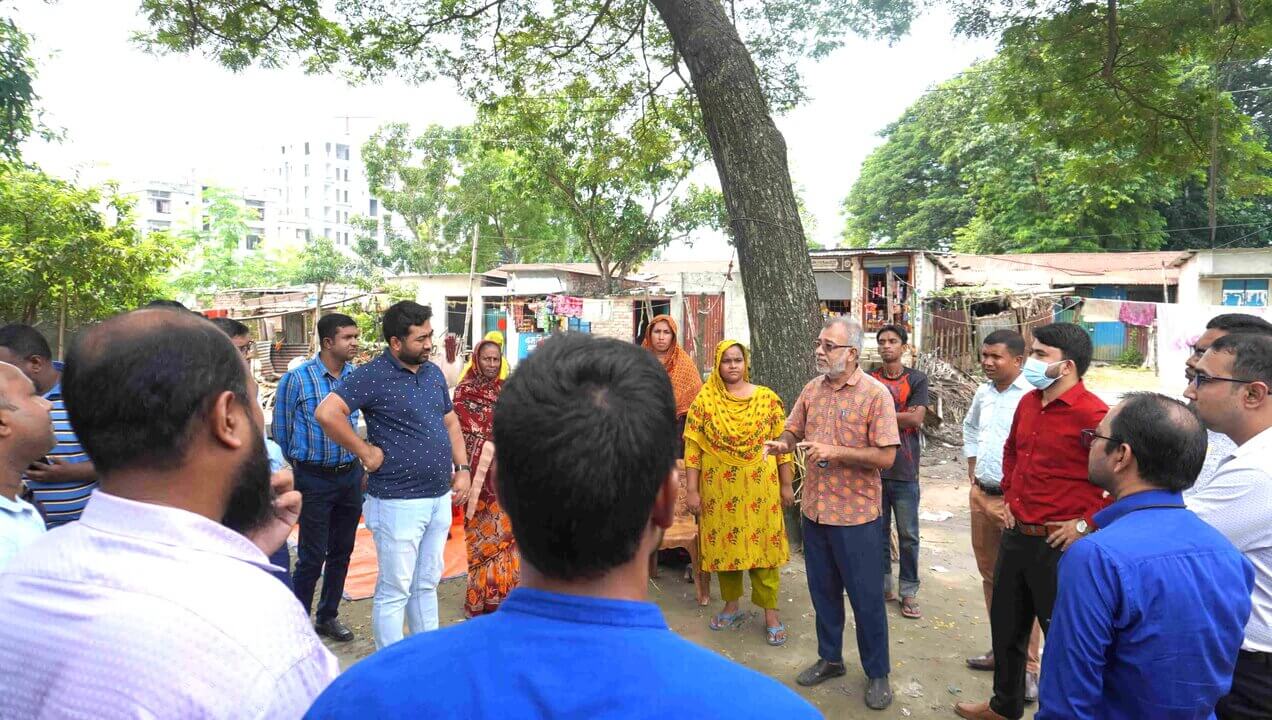
The training program also featured an extensive full-day trip to Kushtia, recognized as a CWIS Mentor City. This trip was designed to offer participants a comprehensive insight into CWIS through on-site visits, demonstrations, and engagements with peers, local communities, public service experts, private operators, representatives from local government, and city leadership. The visit exposed the attendees to innovative and effective CWIS initiatives implemented by Kushtia Paurashava, with technical support provided by ITN-BUET. It equipped the participants with practical knowledge of CWIS principles applied in real-world scenarios, enabling them to replicate similar interventions in their respective contexts.
The schedule included a visit to a public toilet to illustrate equitable and safe excreta management. Additionally, it involved a visit to a Low-Income Community to highlight the community’s sustainable toilet management efforts. Kushtia Paurashava Local Councilor Mr. Md. Saif-Ul-Huq Murad, Urban Planner Mr. Ranver Ahmed, and Slum Development Officer Mr. AKM Monjurul Islam guided the trip. Participants also had the opportunity to tour the Fecal Sludge Treatment Plant of the municipality, where Mr. Md. Isa Haque, a private operator, demonstrated the fecal sludge treatment process to produce soil conditioner for agriculture.
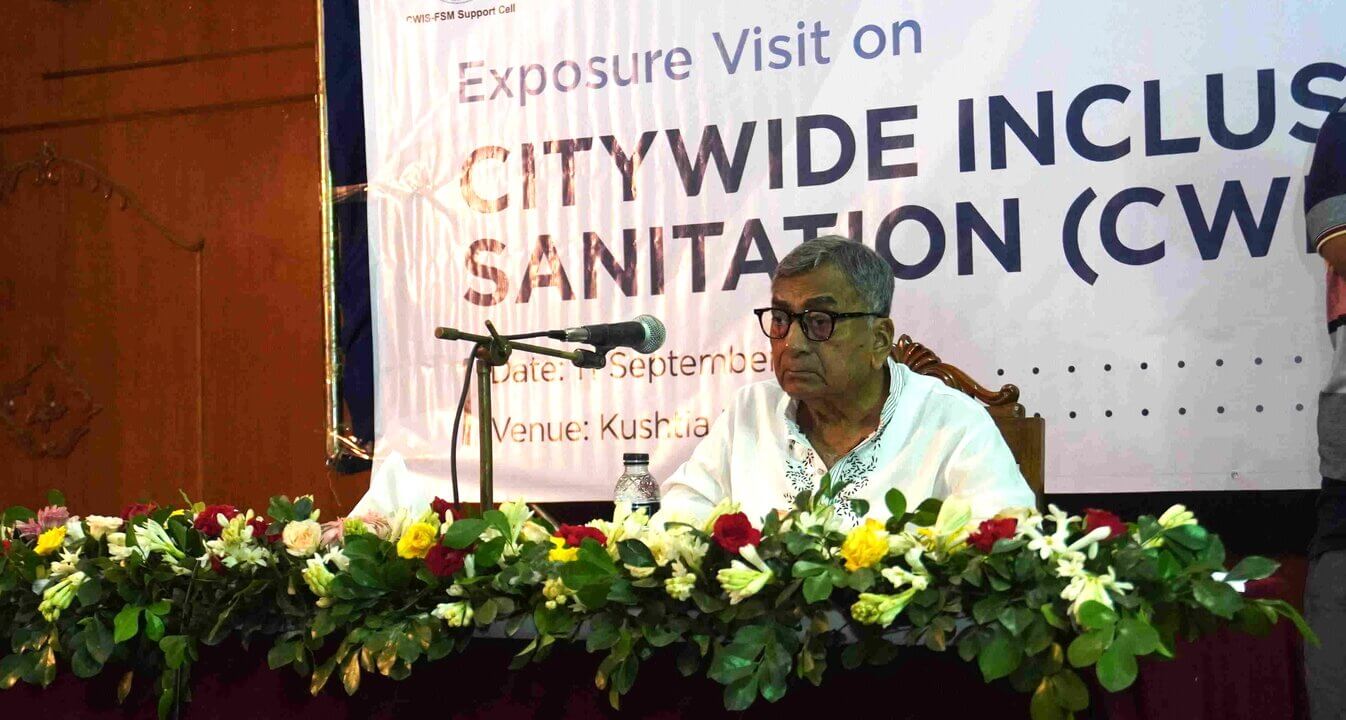
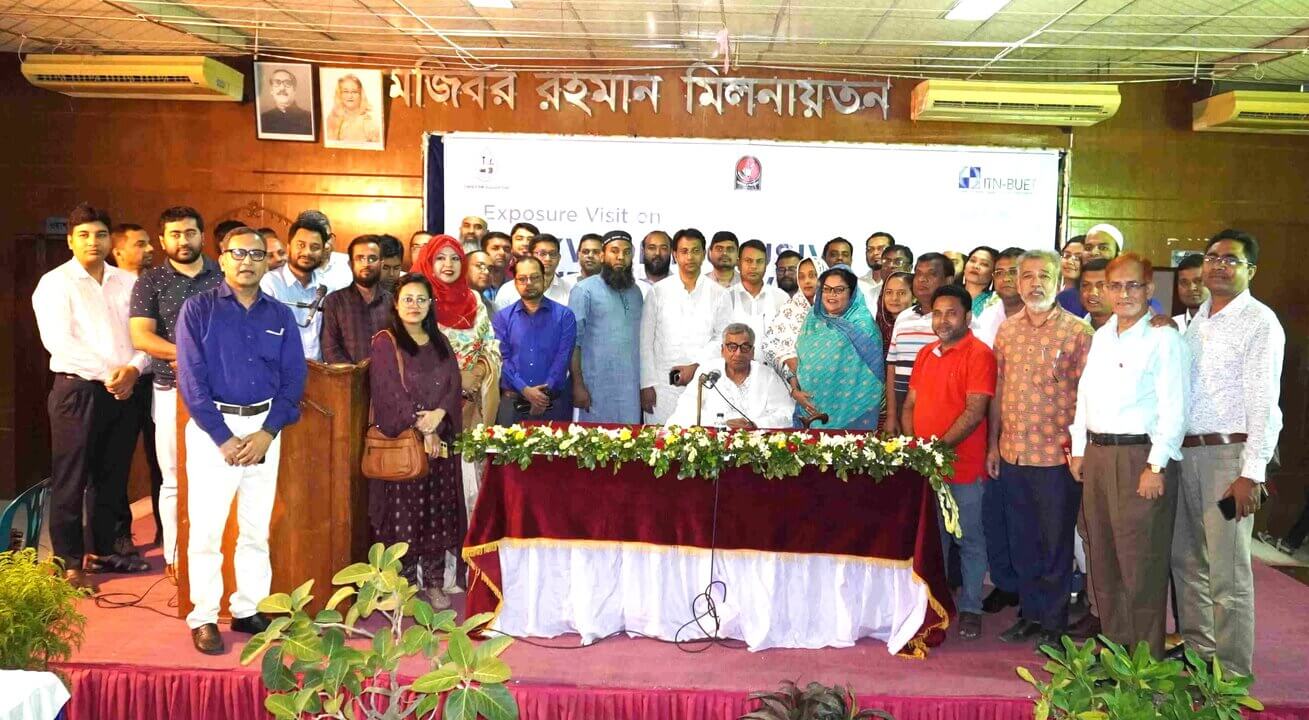
The visit culminated in an interactive workshop with the Mayor of Kushtia Paurashava, during which the participants gained insights into the local government’s strategies for planning and efficiently managing resources to ensure the delivery of safe sanitation services for all. Mayor of Kushtia Paurashava, Mr. Anwar Ali emphasized, “While we have successfully implemented CWIS principles on a modest scale, there is potential for broader replication. It is crucial to enhance public awareness of safe sanitation to involve communities and achieve the desired outcomes of CWIS actively.”
DPHE engineers mentioned that the in-depth understanding and practical knowledge they acquired on CWIS will empower them to bring positive change within their working districts. They also emphasized that implementing CWIS initiatives will contribute to the national efforts to ensure safe and sustainable sanitation services. The participants also received certificates in recognition of their achievement upon successful completion of the specialized training.


.jpg)
